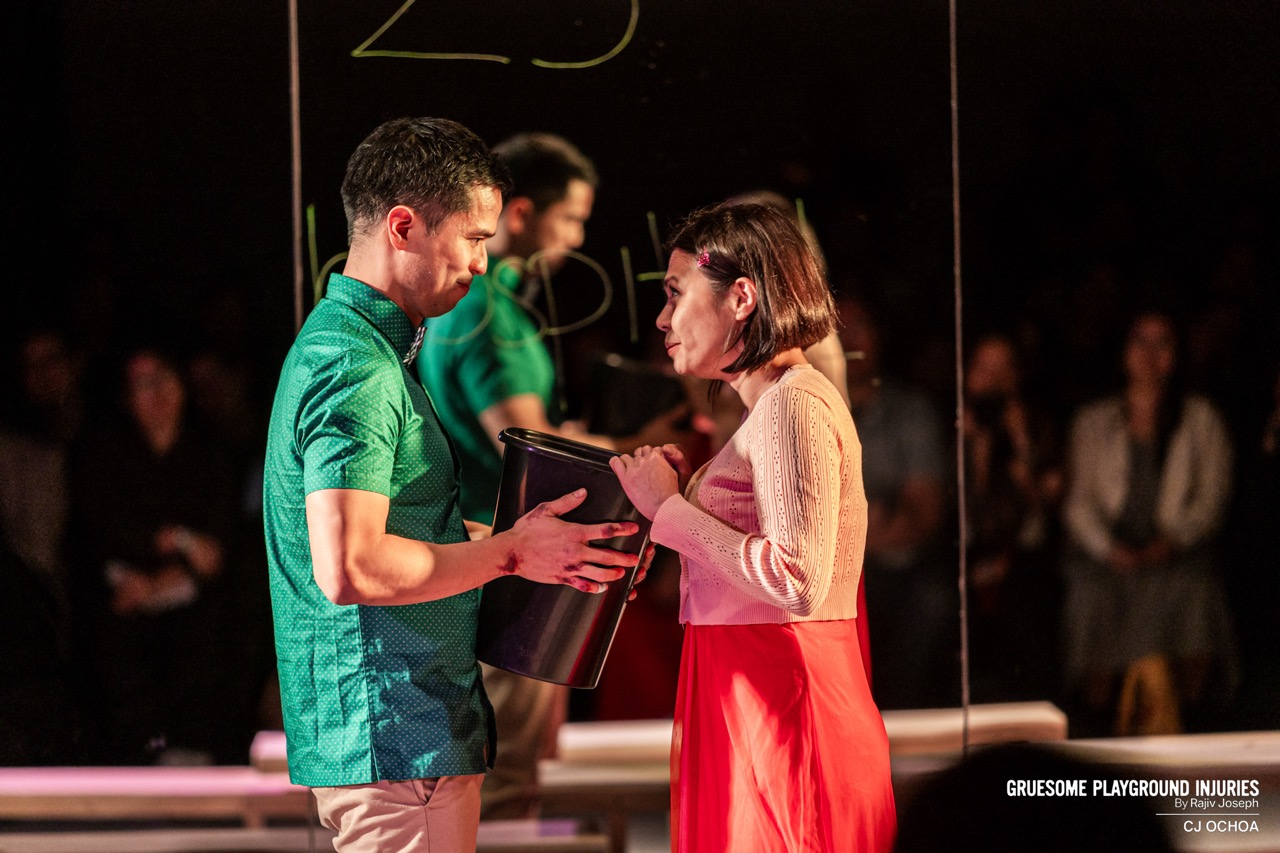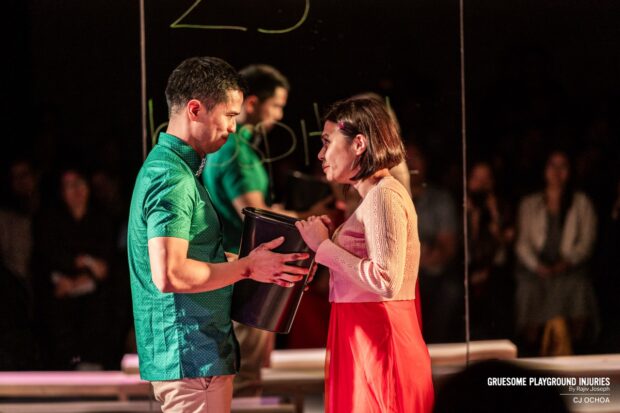
Exactly how do you say goodbye to a home you’ve lived in for 50 years?
With a heavy heart, my mind’s eye soaked up the empty rooms and halls of the place that nurtured nine siblings. Now, one by one, we’re becoming senior citizens. Each will have tales of comedy and tragedy passed down to their children and grandchildren.
From kindergarten to college, we grew up in this home, and it will be demolished next month. It will vanish forever, yet a wellspring of memories will continue to flow and ebb in the banks of our minds.
I thought I would die in this house, but when Tropical Storm “Ondoy’s” murky waters flooded it, I knew I did not want to live here anymore.

My parents, judge Oscar and Rosemarie Leviste, wisely bought the property at the dead end of a street called Don Pedro, so the house was nicknamed Dompi. My father raised the lot an added meter and a half, so annual floods of the rainy season would not go up to our house.
The area from Singalong to Osmeña Highway, bordered by Estrada and Zobel Roxas, was said to be the first experimental village built by the Zobel-Ayalas in the 1930s. Hence the names of the streets—Bautista, Conchu, Dian, Espiritu, Enrique and C. Ayala. There were the beautiful houses not destroyed by the war: the Palladian Ledda house, the Escudero city home, and the Apostol home that now houses Becky’s Kitchen.

Bank loan
Mom and dad also chose the area because it was walking distance to St. Scholastica’s on Leon Guinto for my seven sisters: Regina, Elena, Ana, Teresa, Veronica, Carmen and Olivia. My Kuya Ikoy and I went to De La Salle Taft from prep to Grade 7, then to La Salle Green Hills for high school.
On a 500-sq m plot and with P300,000 from a bank loan, Dompi rose as a two-story house. Downstairs was a huge living and dining room, outside a sprawling veranda. There was a den (my favorite room ) with an indoor garden and narra sliding doors that opened to a fish pond where I raided turtles.
Upstairs was a master’s bedroom with a huge dressing area, walk-in closets and a generous bathroom for my parents, and four bedrooms with connecting bathrooms, two kids to a room. Our neighbor, directly across us, was my Tita Nena, in her 1940s home. I remember a giant mango tree on the property, and my tito raised fierce Doberman Pinschers with clipped ears.
Beside them was Gilopez Kabayao’s pink home, from which came the sound of beautiful violin and piano concertos in the afternoon after school.
Our majordoma was Fortunata Canoy, aka Manang Unton, who took care of my father when they lived with my grandparents. My father inherited the property and built apartment townhouses, which were sold a few years ago.
Manang lived to a ripe old age, being our most talented cook. My mom had her take lessons from Sylvia Reynoso Gala, and we would eagerly await her dishes for the day—meatloaf wrapped in bacon, tenderloin tips, beef stroganoff, paella, kare-kare, cocido, and our favorite sans rival.
Every Christmas, Manang would cook a huge vat of humba with banana blossoms, chestnuts, Chinese pickles and saging na saba. When she retired in Cebu, Kuya Ikoy would send her money, and she had a faded photograph of Ikoy as a smiling boy.
Manang could be a strict disciplinarian and threatened to put us in a burlap sack when we were quarreling. Dad would pull off his belt and whip our backsides. Mom used slippers; once my Kuya Ikoy and I put pad papers in our back pockets, so we were whipped bareback.
Dad was strict, but he reared us well. When I entered puberty, it was dad who taught me sex education through the encyclopedia. Tall, dark and very handsome, he was a demigod to me, but always with his own childhood stories to share.
He was very patient with his brood. When we summered in Baguio or Malvar, where his family was from, he would name trees for me.

Violently strict
But dad could be violently strict. Once Kuya Ikoy and I were quarreling over pork chops, and he stood up and ripped off the tablecloth, sending dinner and plates flying.
“You will never fight over food, ever again,” dad screamed. Henceforth, Kuya Ikoy would always share food with mom and me in Dompi.

Another time, dad was teaching us to eat okra, and proclaimed that none of us could leave the dinner table until we ate it. Soon my sisters were shedding tears and one threw up, but I liked okra, which I eat heartily up to now.
When I first noticed I was gay, it was something I neither feared nor understood. I remember powdering my face and applying a few drops of Givenchy cologne, telling my folks I had to go back to school. I would wander the huge school building, and at recess, I would admire upper-class boys and follow them around like a puppy. They would sometimes buy me a cold Coca-Cola.
After being fetched from school, we would arrive home, where a hearty merienda awaited. Chilled cantaloupe and tuna sandwiches pressed like flying saucers were my favorite. There was banana turon, hotdogs fried in batter and watermelon slices.
Then we would take our baths at 4 p.m. and start doing our homework. A narrow long table attached to the wall had overhead fluorescent lights perfect for reading and writing. We had Encyclopedia Britannica, the Books of Knowledge, the Atlas and a collection of great literature, from Shakespeare to Chaucer. My favorite was “Remembrance of Things Past” by Marcel Proust.
Mom reads pocketbooks to this day; she would tell us the plot, throw in some juicy tidbits and then stop.
Mom had a photographic memory, and taught us to remember the page of a school book and see the facts in our minds to answer our exams. Dad, meanwhile, had audio memory, and could sing the entire soundtrack of “The Sound of Music” with us pretending to be the Von Trapp children.
Dad also taught elocution and had a wonderful speaking voice, so we all learned to modulate our speaking with the proper enunciation. Later in life, because I looked like dad, down to his buckteeth, strangers would tell me, “Anak ka nga ni Oscar. Nagsalita ka lang, narinig ko na ang boses niya.”
Dad sang well, too. He hummed ’50s and ’60s classics while gardening. The day before he died, I taught him the lyrics of “I Don’t Know How to Love Him” from the musical “Jesus Christ Superstar,” the movie we watched on Good Friday. On Black Saturday, he was in a coma due to a fatal head injury when he fell the night before.
Thus did an era come to an end as we bid dad goodbye. And now, as we say goodbye to Dompi, we begin another phase in life. —CONTRIBUTED















































